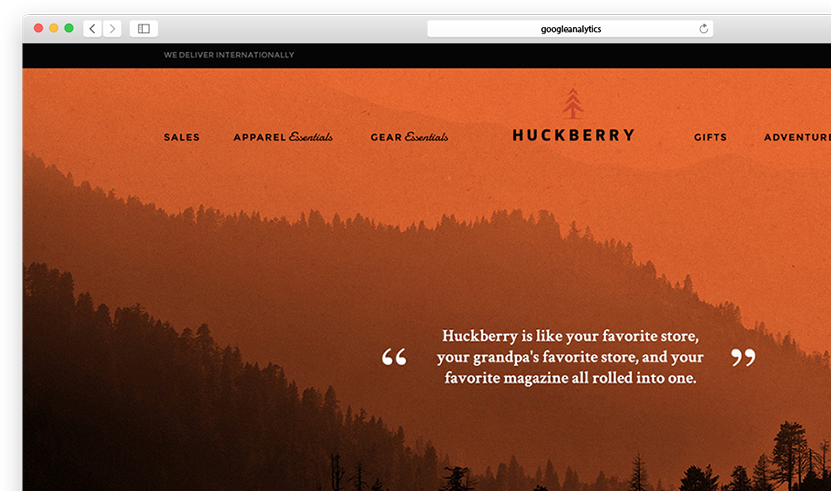The company’s database has been growing exponentially with more and more new e-shops being engaged. The marketplace has already been used by a tremendous number of SMB companies with millions of products available online and hundreds of thousands of daily interactions.
The company’s management addressed us with the request to engage more SMB businesses and to increase the platform’s profitability.
We’ve decided to initiate talks with the company’s team to find new opportunities and devise a strategy to improve their profit growth.
At the time of initial contact, our client has been successfully selling premium accounts to SMB companies by allowing them to create easy-to-build eCommerce websites to launch their product sales. Such comprehensive approach allowed small and medium-sized businesses of all types to start their online sales with little investment.
The platform allowed them to easily choose among available payment methods, shipping options and to implement a basic level SEO to jumpstart their online businesses. Overall, these SMB companies were happy to increase visibility and start their online sales more easily.

We’ve analyzed the data and have found that these SMB companies’ were focused on creating unique content and managed PPC campaigns to get more traffic to their online shops. However, PPC campaigns were not effective enough for most of them because of the poor design of the landing pages.
The same situation was common for the rest of their digital marketing activities because the platform system was too standardized. It didn’t allow proper level of customization for a different type of businesses.
Due to the over-complicated product category architecture, it was hard for platform visitors to conveniently find the products they need. The data from Google Analytics confirmed our hypothesis: the average visitor viewed only 3.5 pages per session despite the fact the platform offered a tremendous amount of products to explore. The user retention was also weak, as shoppers were returning/visiting a marketplace only 5-6 times a year.
We’ve reconfigured the analytics to explore the user navigation flow, made key refinements, and sorted orders applied by visitors. We have also made some KPI adjustments to acquire useful and accurate data instead of what was available at the time. The things we discovered were stunning: the marketplace was full of millions of products available for shoppers, but conversions were too low, and thus profits sank deep below the desired level.
It was a place full of everything you could possibly want, but the purchasing funnel was too complicated to allow for efficient navigation. This made the audience feel let down and kept the sales low. So we accepted this challenge to improve the marketplace.
Some facts that we discovered:
We replaced the existing showcasing system with the one that shows products which are of primary importance for consumers. We decided to differentiate the funnels and processes for B2B and the end consumers as their user experience expectations differ by a wide margin.
Our improvements have been focused on the following areas:
GUIDED NAVIGATION
PRODUCTS TAXONOMY
SEARCH RESULTS IMPROVEMENT


We decided to separate products according to the categories that are of constant interest, such as fast-fashion, from others that are related to durable goods, like tractors.
For this reason, we applied the next rules for the marketplace distribution to improve conversion rates:

Moreover, we’ve introduced the following rules to improve lead generation
To keep the shoppers returning to the platform we’ve introduced the system of constantly updating landing pages (every 1-4 weeks, depending on the category). At the same time, every major landing page change has to be supported by a highly targeted email marketing campaign
We requested SMB’s to improve content quality to increase their presence in the search results (by adding high-res images, advanced text description, assigned attributes)
We’ve also redesigned the product pages to make them more appealing and thus impact conversions.
Improved retention:
Retention skyrocketed
The most lucrative audience started to visit the marketplace a few times a month (!) instead of a few times a year
Brand perception changed
The perception changed from “a place where I can’t find anything” to “a place, where I can find everything”
Conversion rates improved
Conversion increased for all product categories and sales across-the-board skyrocketed
Among others, conversion for apparel and consumer goods increased by a two digit number.
We integrated algorithms that calculated probable remaining inventory at a certain date depending on discount levels to keep the stocks up and customers happy. We redesigned product rankings algorithms for specific site blocks according to the unique user preferences. We also simplified the navigation structure and introduced advanced cross-selling techniques. These changes allowed shoppers to quickly find products they need and stay on the marketplace longer to investigate other valuable offers. It allowed SMB’s to optimize their product ranking strategies and manage discounts efficiently.
The average user session jumped from 3.5 to 7.5 page-views leading to increased platform profits.
